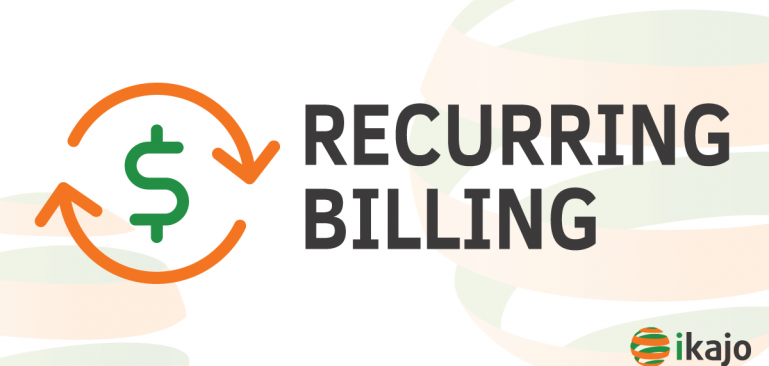Recurring billing, a payment model that aims to simplify regular payments and prevent the customer from providing the credit card information more than once, is often considered to be high-risk. The reason for it lies in its very essence.
Why is that so? What is recurring billing and what businesses need it? Find the answers in this article.
What are recurring payments?
Recurring billing, according to the Investopedia, takes place “when a merchant automatically charges a cardholder for specified goods or services on a prearranged schedule. Recurring billing requires the merchant to get the cardholder’s permission one time up front, then continues until the cardholder withdraws permission.”
Merchants ask for a cardholder’s permission to withdraw money once. He initiates the first withdrawal asking to provide his credit card information for the very first time when paying for goods and services. All the next ones are performed by the merchant on the terms and pursuant to the conditions set out in the agreement.
Recurring billing is only valid for businesses with subscription payment model. Among such businesses are:
- those delivering marketing services,
- adult entertainment,
- nutraceuticals,
- timesharing,
- web hosting,
- cell phone companies, etc.
One of the primary goals of this payment model is to make the process of paying for goods convenient. The customer can consume services without having to worry about monthly pays for the services delivered.
However, this convenience can be a disadvantage too. In fact, recurring billing is often considered high-risk, and here is why.
Why are recurring payments considered to be high-risk?
Since the cardholder only has to give his approval to withdraw funds from his account once, this payment model is considered high-risk.
Customers often forget about this agreement.
Plenty of customers merely forget about this agreement. Once they notice that funds are being withdrawn, they can ask for a refund or charge their money back.
No merchant wants to deal with chargebacks. They jeopardize his chance to run the business pain-free. Visa and MasterCard monitor the level of chargebacks for any chosen business. And those with chargeback level higher than an established one are at risk of being refused to process their Visa and MasterCard payments.
Visa and MasterCard want to make sure that the customers fully understand what agree to when opting for this payment model. For it, they require all businesses working with this payment model to have all the details described in the Terms and Conditions.
However, not all users read this chapter carefully. And even if they do, there is a chance they can forget about the agreement and, surprised with the withdrawal made by the bank, they call the bank to request a chargeback.
Users are unable to correct mistakes.
Another reason that makes recurring billing high-risk is the inability to correct errors right away. Unlike a regular payment which you can send back if you notice a mistake in it and only pay after the error is corrected, recurring billing means that the customer will still have to pay for the services despite the error and then ask for a refund.
Refunds and chargebacks might seriously harm merchant’s payment record.
You might also like “Get started with the payment gateway on your site“.
So, just to be on the safe side, it’s better to offer recurring billing as a payment model for services that always cost about the same amount and are charged at the same scheduled time.
Clients need to cancel services explicitly.
Some merchants specify in an agreement that they will draw from client’s account a specific amount of money indefinitely. Therefore, to stop paying for the services one has to cancel the service explicitly.
This, again, might lead to numerous complaints, and chargeback requests. So, talk such conditions through with your customers before you offer such an option to them.
What do merchants expect from a recurring billing payment gateway?
Merchants looking for a recurring billing payment gateway typically look for:
- The flexibility of billing periods.
Merchants want to be able to change the periods and conditions of recurring billing. For instance, marketing agencies offering their services in packages want to be able to charge money whenever the user runs out of the provided services, not necessarily at the end of the month.
Therefore, flexibility is extremely important. - An ability to create an unlimited number of plans.
Merchants search for a gateway that makes an unlimited number of plans possible. They do it to customize recurring billing conditions and offer customers a more extensive number of options.
This allows every business to reach out to more customers and bring their services to them in a way that is the most relevant. - “Retry” opportunity.
It is crucial in case the initial payment was not successful. The main point of recurring billing is that the client doesn’t have to enter his credit card details over and over again.
That is why merchants are looking for recurring billing payment gateway that allows retries in case the initial payment failed (without having actually to bother the cardholder).
Also read: “HPP vs. API: Finding your perfect fit”
Types of recurring payments
Recurring payments can be classified into two main types based on the payment pattern they fall into.
- Regular recurring payments.
These payments have a specified schedule. For instance, you might be paying for some services every 1st of the month. Besides, if you pay for something every week, quarter, or a year, you’re dealing with regular ones too. - Irregular recurring payments.
These payments are unique since the customer has to pay for them on a specified date defined by the business type and context. The merchant does not draw funds from cardholder’s account once a week, a month or a year. Instead, he withdraws them based on the agreement between a merchant and a cardholder.
Benefits of recurring billing
If you are considering offering recurring billing to your customers, then we are with you on this one. Recurring billing has numerous benefits that every merchant should pay attention to:
- Customer retention.
Customers that subscribe to your services and agree with the payment model you offer them are more likely to turn into loyal customers and opt for your services over a dozen of other ones. Thus, recurring billing means better customer retention. - Saving time.
Since you only have to collect client’s information once, you are saving tons of time, both yours and the customer’s. This way not only you end up optimizing your business processes. This will also show clients that you respect their time and don’t want to waste a minute of it by asking to fill the same information over and over again. - Revenue prediction.
By having customers subscribe to get your goods and services, you can easily predict what revenue you will make at a certain point. These calculations won’t be precise. But they’ll definitely give you a general idea (and we think you’ll agree that it’s extremely helpful). - Lower billing costs.
With the subscription model there is no need to have paper bills and run your business using all the conventional methods. Therefore, you get to lower the costs and automate accounts receivable. - Better cash flow.
Another great benefit of having recurring billing is that it increases the cash flow. The Huffington Post states that “recurring payments is one of the best ways to maintain a steady stream of revenue.” And we could not agree more!
Over to you
It is a great idea to have recurring billing as one of the options. However, there are numerous pitfalls to bear in mind when adding subscription model to the list. Strive for full transparency to ensure your clients know what they agree to. Offer a variety of subscription options with different packages of goods and services, and make the payment process seamless.
If you are looking for a recurring billing payment gateway, drop us a line at [email protected]: we know everything about it and will gladly answer your questions.





